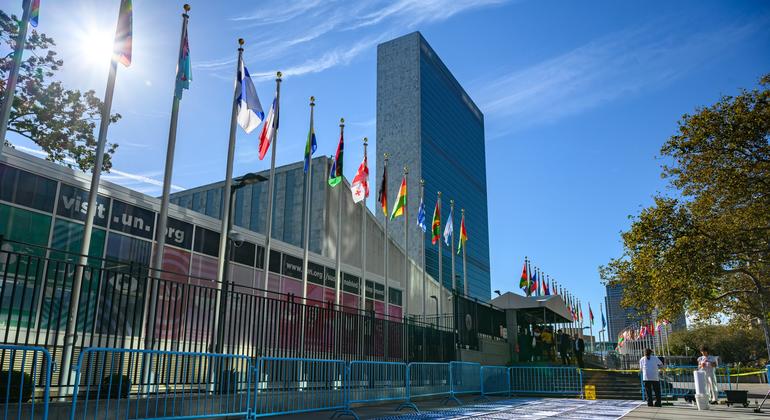Here’s the American English translation of your text:
—
The revised estimates of the UN regular budget for 2026 have been communicated to the Advisory Committee on Administrative and Budgetary Questions (ACABQ), revealing a significant reduction of 15.1% in resources and 18.8% in positions compared to 2025. Cuts have also been announced in the support account for peacekeeping operations, which are crucial for the personnel and services of UN missions worldwide.
The ACABQ, responsible for advising the General Assembly, will review these proposals before forwarding its recommendations to the Fifth Committee, where the 193 Member States will make decisions on administrative and budgetary matters. António Guterres, the UN Secretary-General, explained in a letter that these cuts result from a thorough review of resource allocation and mandate implementation, aiming to balance the fundamental pillars of the UN Charter: peace, human rights, and sustainable development.
Guterres emphasized that the cuts will be selective rather than general, protecting programs that directly benefit Member States, particularly those that are least developed and development projects in Africa. Support for the Peacebuilding Fund and Resident Coordinators will be maintained, while regional economic commissions will undergo minor adjustments. The Regular Technical Cooperation Program, on the other hand, will continue to expand to enhance capacity-building support in developing countries.
Nevertheless, the Secretary-General has warned that these reductions mean concessions that could impact the delivery of products and services. Mitigation measures will be implemented to protect essential mandates, prioritizing high-impact results and fostering collaboration among different entities.
In this context of political and financial uncertainty, the UN80 Initiative seeks to improve the Organization’s effectiveness. The revised estimates propose enhancements in UN management through the establishment of new administrative centers in New York and Bangkok, the consolidation of global teams, and the relocation of functions to more cost-effective locations. It is expected that more efficient real estate management will generate additional savings, including the release of leased buildings in New York by 2027.
Launched in March 2025, the UN80 Initiative is based on three pillars: proposals for efficiency and management improvement, review of mandate execution, and structural and programmatic adjustments. The revised budget modifications will first be assessed by the ACABQ and then considered by the Fifth Committee of the General Assembly, with decisions expected in December and gradual implementation starting in 2026. Guterres has acknowledged that these reforms will impact UN personnel, ensuring that they will receive the necessary support during this process.
—
If you need any adjustments or additional translations, feel free to ask!
Source: MiMub in Spanish
